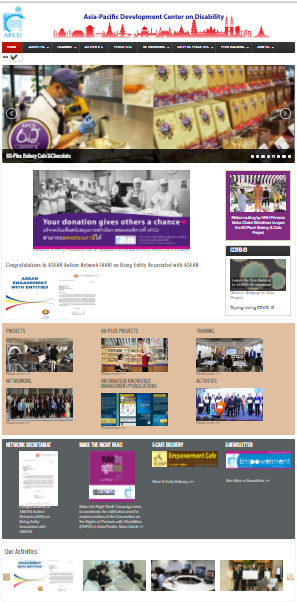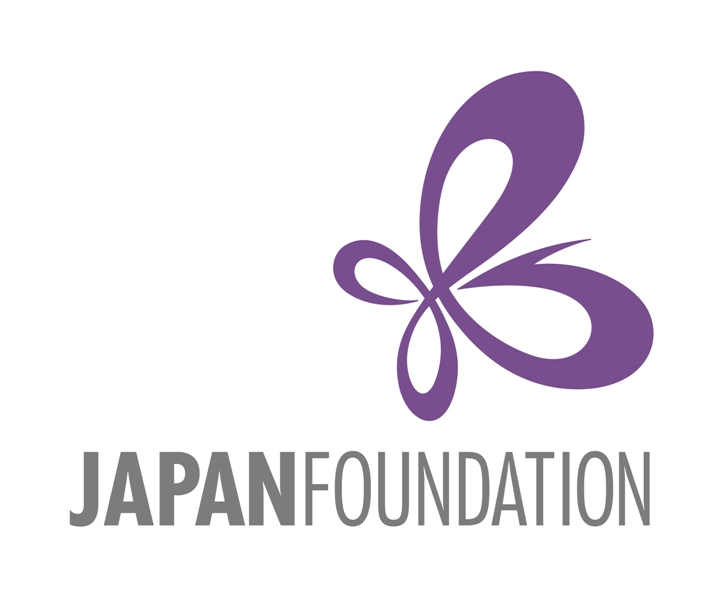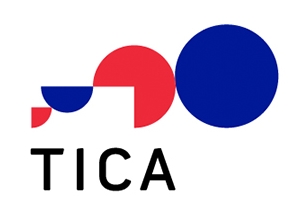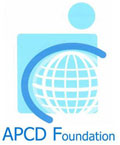Islamabad Recommendations on Regional Networking and Collaboration in South Asia

Islamabad Recommendations on Regional Networking and Collaboration in South Asia
The Regional Leadership Conference for Persons with Disabilities in South Asia was organized by Ministry of Social Welfare and Special Education, Special Talent Exchange Program, Sightsavers, Asia-Pacific Development Center on Disability, British Council and Telenor Pakistan on 31 July- August 2, 2010 at Hill View Hotel in Islamabad. More than 100 delegates got together from all over Pakistan, Bangladesh and Nepal. Deliberations and valuable inputs regarding sub-regional and regional collaboration have been shared in different times and occasions such as in Dhaka and Bangkok by major collaborators from Afghanistan, Bhutan, India, Maldives, and Sri Lanka. With more specific emphasis on resource mobilization in South Asia, the presentations of key speakers, panel discussions and the deliberations of the participants in the conference provided a range of perspectives and perceptions about the way forward in South Asia.
Preamble
From South Asia which is a diverse and thickly populated area of the world with many cultural similarities and living patterns, we, the participants at the Regional Leadership Conference:
1. Acknowledge that there is a growing concern of disability within the region, and further actions should be taken by all stakeholders including both government and non-government sectors in South Asia, ensuring that persons with disabilities are entitled to enjoy the same rights, privileges and opportunities as other citizens in South Asian countries,
2. Recall sub-regional and regional cooperation and collaboration in the Biwako Millennium Framework for Action towards an Inclusive, Barrier-free and Rights-based Society for Persons with Disabilities in Asia and the Pacific (BMF) and BMF Plus Five, adopted by the United Nations Economic and Social Commission for Asia and the Pacific (UNESCAP) as the framework in the Asian and Pacific Decade of Disabled Persons, 2003-2012,
3. Appreciate the governments in South Asia who have signed and ratified the United Nations Convention on the Rights of Persons with Disabilities (UNCRPD) and its optional protocols,
4. Share that there are attitudinal barriers with metaphors, jargons and phrases which reinforce exclusion of persons with disabilities in South Asia, and agree that such terminologies as special parks and special buildings be replaced with other appropriate terminologies in accordance with UNCRPD and other international standards,
5. Note that present judicial systems, governance and administrative structures in South Asia need to be made more conducive to the needs of persons of with disabilities, and recognize necessary measures to be taken to address issues of persons with disabilities in judicial policies, governance reforms and administrative structures,
6. Encourage all stakeholders including governments to consider research and development opportunities in partnership with public and private sectors, especially media to demonstrate good practices and raise awareness in general public,
7. Recognize the needs of actions for promoting community-based inclusive development in South Asia and other sub-regions in collaboration with various stakeholders including governments, Disabled People’s Organizations (DPOs), APCD, corporate sectors, international NGOs, sub-regional and regional agencies, UN agencies and other partners,
8. Identify that poverty reduction and livelihood programs are major focuses of governments, DPOs and other development sectors in South Asia and there is need to mainstream disability issues from regional perspectives,
9. Emphasize accessibility standards being applied in the construction and refurbishment of commercial, public buildings, and other disability-sensitive communications by using accessible format in any type of materials,
10. Agree that a few corporate sectors have been proactive and started a number of social business interventions that strengthen the inclusion of persons with disabilities. Such good social business practices should be promoted and replicated further towards the future of South Asia,
11. Emphasize the importance of education and training in an inclusive manner with support from governments, APCD, corporate sectors, international NGOs in close consultation with DPOs, sub-regional and regional agencies, UN agencies and other partners, bearing in mind a large number of persons with disabilities who need to be included in communities across the South Asian region,
12. Promote community-based inclusive development programs through sub-regional and regional networking and collaboration on a basis of South to South cooperation between governments, DPOs, APCD, corporate sectors, international NGOs, sub-regional and regional agencies, UN agencies and other partners, ensuring that all types of development forums, networks, and coordination committees should encourage participation and representation of DPOs.
Recommendations
In line with the BMF and BMF Plus Five regarding sub-regional and regional cooperation and collaboration, adopted by UNESCAP, in addition to the discussion of post-decade activities at UNESCAP after 2012, we, the participants at the Regional Leadership Conference in Islamabad, hereby recommend:
1. To agree and endorse the establishment of “South Asian Disability Forum (SADF)” that networks various DPOs and NGOs in South Asia, regardless of types of disability, to address a regional point of view in South Asia. In collaboration with governments, APCD, corporate sectors, international NGOs, sub-regional and regional agencies, UN agencies and other partners, SADF is expected to play a role to highlight a regional focus on the inclusion of persons with disabilities as a development priority. The secretariat of SADF shall be located in Islamabad, Pakistan.
2. To encourage those governments in South Asia that have not signed and/or ratified UNCRPD to accelerate the process of ratification. As one of key countries in South Asia, the Government of Pakistan shall accelerate its on-going process to ratify UNCRPD. Further, countries that have already ratified UNCRPD are encouraged to harmonize existing legislation and establish effective implementation and monitoring systems.
3. To develop a mechanism on regional collaboration in close cooperation with APCD from the perspective of South Asia in Islamabad. In consideration of the Government of Pakistan through the Ministry of Social Welfare and Special Education expressing their willingness to support such mechanism, it shall include mobilization of available human, information and other resources in partnership with other governments, DPOs, corporate sectors, international NGOs, sub-regional and regional agencies including South Asian Association For Regional Cooperation (SAARC), UN agencies and other partners.
2 August 2010
Endorsed by
Muhammad Athar Tahir
Secretary, Ministry of Social Welfare and Special Education, Government of Pakistan
Akiie Ninomiya
Executive Director, Asia-Pacific Development Center on Disability
Muhammad Atif Sheikh
President, Special Talent Exchange Program
Niaz Ullah Khan
Country Director, Sightsavers
Affan Haider
Manager Corporate Communications, Telenor Pakistan
David Martin
Director Pakistan, British Council
Witnessed by
Mosharraf Hossain
Country Director, Action on Disability and Development, Bangladesh
Executive Committee Member, Asia and Pacific Disability Forum
Birendra Pokhral
President, National Federation of the Disabled Nepal
Chairperson, Disabled Peoples’ International South Asia
Ghulam Nabi Nizamani
Secretary, Disabled Peoples’ International Asia-Pacific Region
Vice Chairperson, Community-based Rehabilitation Asia-Pacific Network
Executive Committee Member, Asia and Pacific Disability Forum











